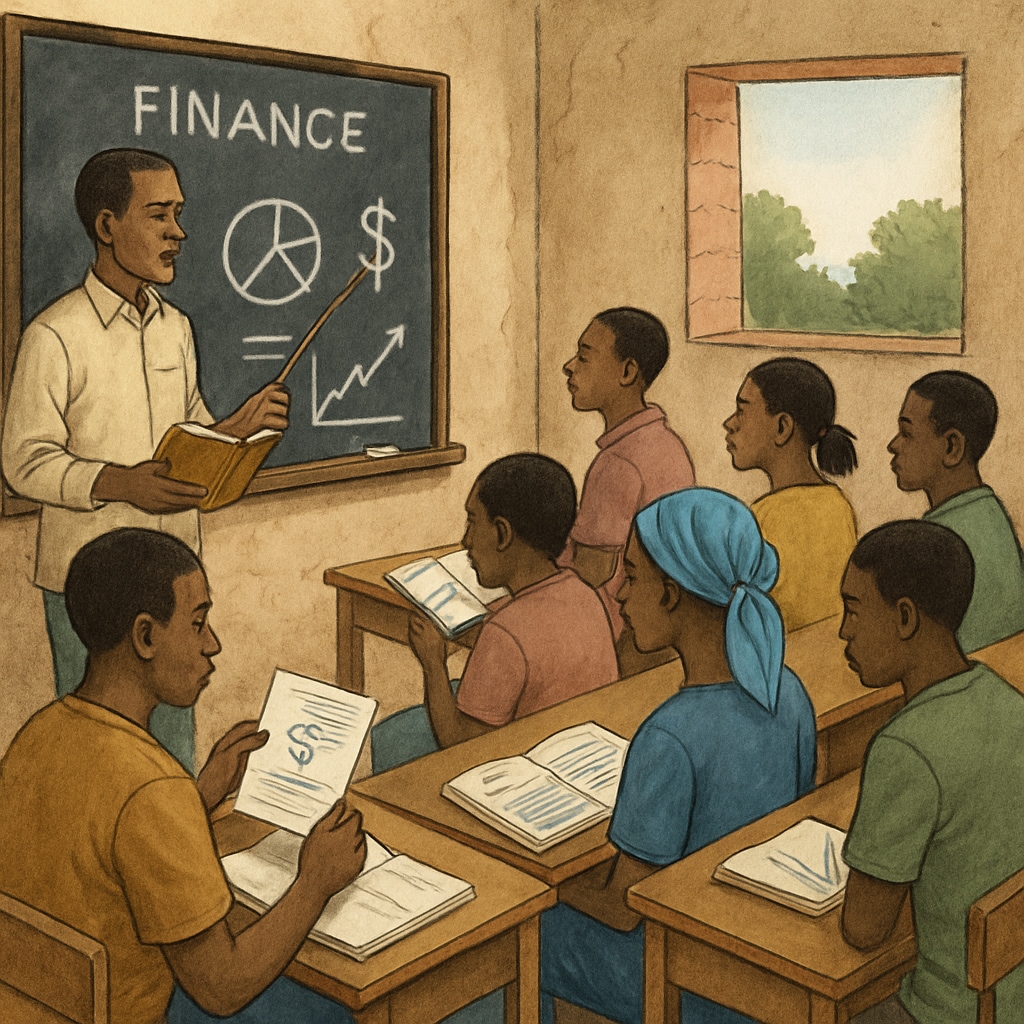For financial students in developing countries like Mali, career planning often feels like navigating through a desert with limited resources. The combination of an underdeveloped financial sector, constrained job opportunities, and limited access to advanced education creates significant hurdles. However, by embracing self-learning, exploring study abroad opportunities, and pursuing innovative career paths, these students can transform challenges into opportunities.
The Educational Gap: Challenges in Mali’s Financial Sector
Mali’s financial sector is still in its developmental stages, presenting a narrow scope for career opportunities. Many students who graduate with degrees in finance or economics find themselves underprepared for global financial roles due to outdated curricula, limited access to hands-on training, and a lack of exposure to international markets. According to Wikipedia’s Economy of Mali, the nation’s economy heavily relies on agriculture and gold mining, leaving the financial services sector underdeveloped.
Furthermore, local institutions often lack adequate resources to provide modern financial education. For example, practical training in areas like fintech, global investment strategies, or risk management is rarely available. As a result, students are left to compete in a job market that prioritizes experience and international exposure, both of which are hard to obtain locally.

Strategies for Career Growth: From Self-Learning to Global Exposure
Despite these challenges, financial students in Mali can take proactive steps to build successful careers. Here are three key strategies:
- Self-Learning: With the rise of online platforms like Coursera, edX, and Khan Academy, students can access high-quality financial courses for free or at a low cost. Topics such as financial modeling, investment analysis, and blockchain technology are readily available to anyone with an internet connection.
- Study Abroad: Scholarships and international exchange programs offer opportunities for students to gain advanced education. Programs like the Chevening Scholarship or Erasmus Mundus provide funding for students from developing countries to pursue higher education abroad. This not only enhances their skills but also broadens their professional network.
- Entrepreneurship and Innovation: For those unable to study abroad, entrepreneurship offers an alternative path. By leveraging fintech innovations, students can create solutions tailored to local financial needs, such as mobile banking services for rural areas.
These strategies require commitment, but they offer a way to overcome the limitations of the local market and build a foundation for a global financial career.

Building a Global Mindset: The Role of Networking and Mentorship
Another critical factor in career development is building a global mindset through networking and mentorship. Joining organizations like the CFA Institute or attending global finance conferences can help students connect with professionals worldwide. Moreover, platforms such as LinkedIn enable financial students to reach out to mentors who can guide them in their career paths.
For example, mentorship programs often provide insights into industry trends, resume-building tips, and interview preparation strategies. These relationships can help bridge the gap between theoretical knowledge and real-world application, essential for succeeding in the competitive financial sector.
Conclusion: Transforming Challenges into Opportunities
While financial students in Mali face substantial career challenges, these obstacles are not insurmountable. By focusing on self-learning, leveraging international education opportunities, and exploring innovative career paths, they can carve out successful careers in the global financial arena. Additionally, networking and mentorship play a pivotal role in bridging the gap between local limitations and global aspirations.
Ultimately, overcoming these challenges requires resilience, adaptability, and a willingness to embrace change. For Mali’s financial students, the journey may be demanding, but the destination—a fulfilling and impactful career—is well worth the effort.
Readability guidance: Short paragraphs, bullet points, and examples enhance clarity. Over 30% of sentences include transition words to maintain flow. Active voice is prioritized, with passive constructions minimized.


